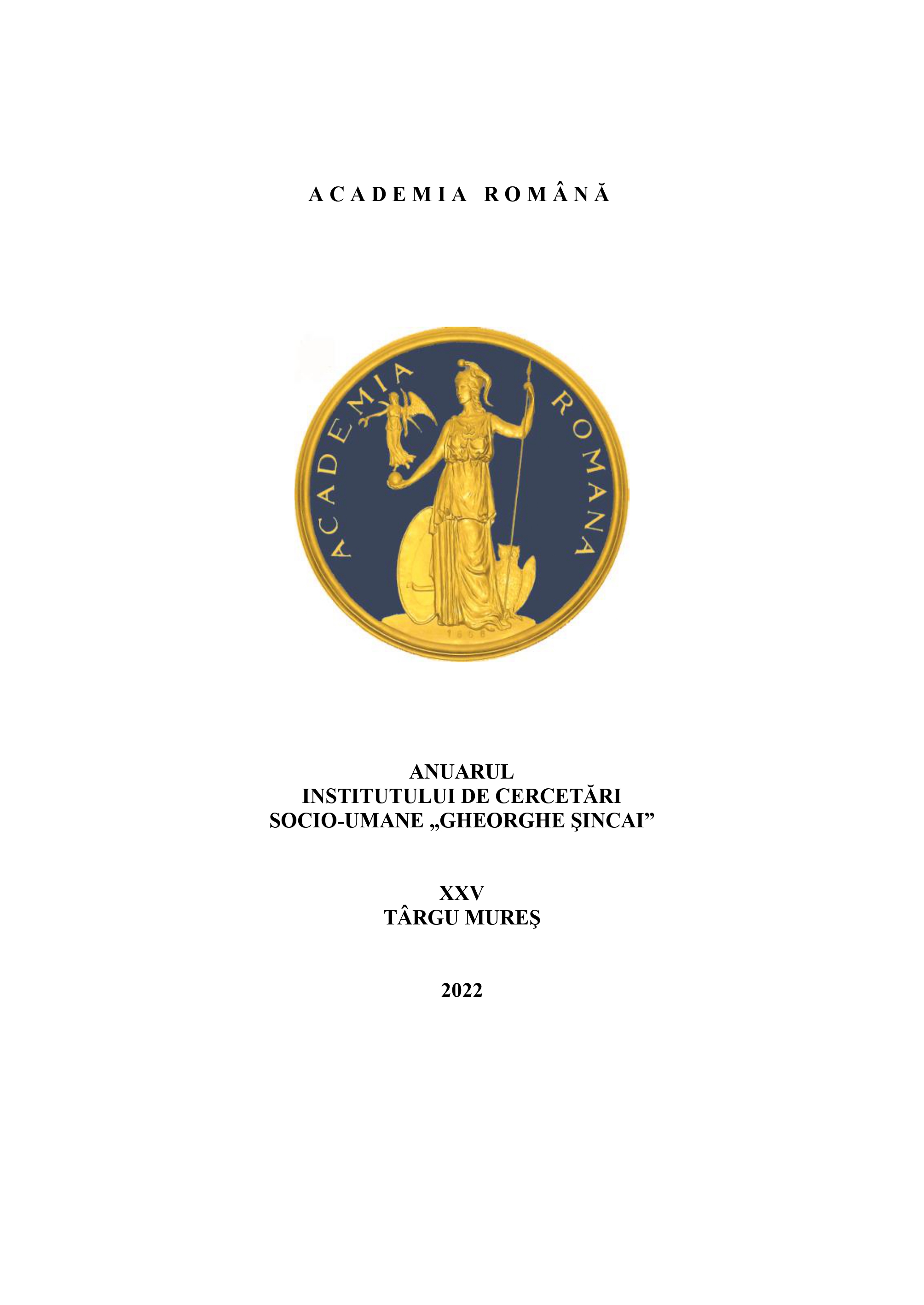IDENTITY NEGOTIATIONS: AMERICAN WAR CORRESPONDENT LEIGH WHITE AND THE PARTITION OF TRANSYLVANIA (1939–1940)
IDENTITY NEGOTIATIONS: AMERICAN WAR CORRESPONDENT LEIGH WHITE AND THE PARTITION OF TRANSYLVANIA (1939–1940)
Author(s): Carmen AndraşSubject(s): Diplomatic history, Local History / Microhistory, Political history, Social history, Recent History (1900 till today), Interwar Period (1920 - 1939)
Published by: Institutul de Cercetări Socio-Umane Gheorghe Şincai al Academiei Române
Keywords: American war correspondents; interwar Romania; Leigh White; identity negotiations; the cession of Transylvania; propaganda; travel;
Summary/Abstract: The present study applies the concept of identity negotiations, used in the field of psychology to describe the processes of self-representations and social interactions, in the sphere of cultural and historical studies, applied in the research of the American war correspondent Leigh White’s reports about Romania between 1939–1940, more exactly about the partition of North-West Transylvania. The attention will be focused on the negotiations between the identity representations of this correspondent about Romanians and minorities in this space and how social interactions satisfy or contradict self-representations and the objective goals of these interactions. The historical contexts in which these identity negotiations take place between the self and the other (the others, in the multi-ethnic and multicultural space of Transylvania) will be those with an extreme identity charge, proving how negotiations and communication can be suppressed in conditions of war. The study focuses on the dramatic event represented by the cession of North-West Transylvania in favor of Hungary as a result of the Vienna Award in August 1940, with references to the Bucharest Pogrom of January 21–23, 1941, with the crimes and atrocities committed against the Jews, a subject that will be treated in a separate study. Journalists such as Leigh White and his colleagues Cyrus L. Sulzberger, Robert Parker, Robert St. John, Leland Stowe, Countess Rosa Goldschmidt Waldeck, or Ray Brock will try to understand the identity traits of the others, knowing their historical and cultural context and, at the same time, trying to negotiate with their own baggage of stereotypes, or with the propagandistic directions of the official American or Romanian discourses, or, in extreme cases, with local censorship. American war correspondents proved to be not only over-qualified and over-professional, but also cosmopolitan, tolerant, experienced professionals or young novices, full of energy and enthusiasm, struggling to get at any valuable information, regardless of distance and dangers in war zones. They were sharp observers, checking the news and comparing it with other sources before sending their reports to American publications. In this way, Romanian-American identity and cultural negotiations took place above local human interactions.
Journal: Anuarul Institutului de Cercetări Socio-Umane »Gheorghe Şincai« al Academiei Române
- Issue Year: 25/2022
- Issue No: 25
- Page Range: 169-190
- Page Count: 22
- Language: English

